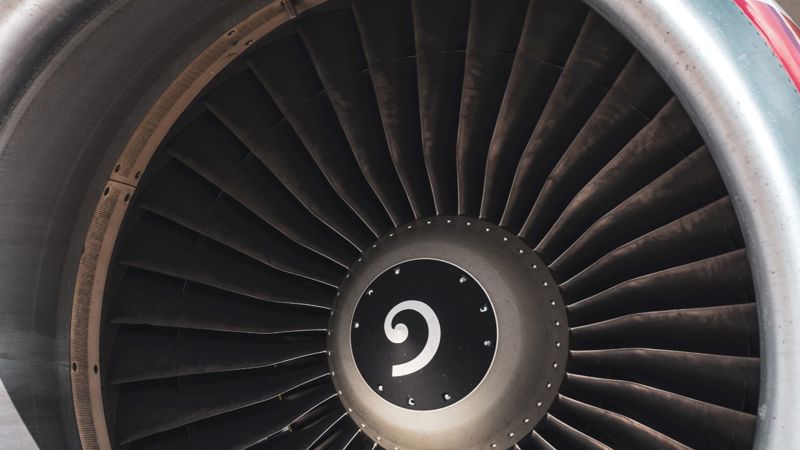
On 4 May 2020, the European Commission approved €7 billion in State aid for Air France. The aid will be subject to a number of conditions, including environmental commitments that will require the French airline to cut its CO2 emissions. Minister for the Economy Bruno Le Maire is particularly keen for Air France to shut down certain domestic routes, thereby redirecting demand towards rail transport. These environmental ambitions are undoubtedly legitimate and even desirable. However, economic theory suggests that the measures put forward risk generating negative externalities and that, to be effective, they will need to be accompanied by sector-specific regulations and the liberalisation of rail transport. Without this, rival airlines might feel encouraged to replace Air France on domestic routes. Meanwhile, the effective liberalisation of rail transport will need to play a role in boosting the volume and quality of rail transport services, rather than raising the prices of those already in place.
State aid
- On 4 May 2020, the European Commission authorised the French government to award €7 billion in State aid to Air France-KLM. According to the press release published on the airline’s website, this rescue package consists of two components:
- A €4 billion loan granted by a syndicate of nine banks, 90% of which is guaranteed by the French government, with a 12-month maturity and two one-year extension options.
- A €3 billion subordinated shareholder loan granted by the French government, with a 4-year maturity and two one-year extension options.
- The stated purpose of this measure is to provide Air France with “the liquidity that it needs to get through this difficult time pending the sales recovery that is expected to take place as the restrictions are gradually lifted”. The aid was also granted in recognition of the “essential role played in repatriating citizens and transporting medical equipment”.
- These loans were declared to be compliant with the State aid temporary framework approved by the Commission on 19 March 2020, as well as article 107, paragraph 3.b of the TFEU (which allows a Member State to take the measures necessary to address serious disruptions to its economy) and article 106, paragraph 2 (which is not referred to directly in the Commission’s press release, but appears to be applicable when assessing measures taken to ensure the continuity of services of general economic interest).
Conditions
- The details of this agreement (and the full text of the Commission’s decision) remain to be published. However, it seems quite clear that this intervention by the French government is geared towards achieving certain policy objectives, given the specific conditions tied to it.
- On 24 April, Minister for the Economy Bruno Le Maire stated on French television channel TF1 that “the loans granted to Air France are not a blank cheque”. On 29 April, in his speech to the French National Assembly, the minister spelled out a clear environmental objective: to promote the use of rail transport for short domestic journeys (to the detriment of air transport), by urging Air France to discontinue domestic flights on routes that take less than two and a half hours by train. This concession would essentially prevent Air France from competing with French rail operator SNCF on certain domestic routes. Lastly, on 4 May the Executive Vice-President of the European Commission, Margrethe Vestager, stated that “ France has also announced plans for certain green policy choices as regards Air France. Good.
- In practice, according to the data compiled by French newspaper Le Monde’s “Les Décodeurs” column and published in 2019 to mark a law proposal on domestic flights, there are five domestic airline routes with rail alternatives that take under two and a half hours. These routes connect Paris to Bordeaux, Lyon, Nantes and Rennes, and Lyon to Marseille. They account for 2.6 million passengers, i.e., 11% of all traffic on 103 direct commercial routes to which there was a rail alternative in 2018.
- The environmental objectives mentioned earlier are undoubtedly legitimate and even desirable. However, microeconomic theory suggests that this concession could have negative repercussions both for consumers and, paradoxically, the environment. In order to minimise these risks, the obligations imposed on Air France will need to be accompanied by more comprehensive and targeted regulatory interventions in the aviation and rail sectors.
Potential adverse effects
- First of all, Air France’s withdrawal from these routes may not produce the outcome expected in terms of airline service coverage. Indeed, other airlines (low-cost carriers in particular) could decide to serve the routes on which Air France currently enjoys a monopoly position or to strengthen their presence on those they already serve. This seems especially likely on the most commercially attractive routes.
- To counter this eventuality, the ban will need to be extended to all airlines operating in France through sector-wide regulation. Recent declarations from the Secretary of State for Transport seem to suggest that the government is heading in that direction. Failing this, rival airlines might feel encouraged to replace Air France on domestic routes, thus nullifying the environmental objectives of the measures.
- Second, if Air France ceases to operate these routes and rival airlines are successfully prevented from stepping in, the fact that rail traffic will no longer face competition from airlines could be detrimental to consumer welfare. This will prove to be the case in the event that French rail operator SNCF increases the price of train tickets or if quality of service deteriorates (notably in terms of punctuality, refund policy and intermodal connectivity). What’s more, the most disadvantaged travellers will be the most impacted, given that they stand to suffer most in relative terms from a rise in prices.
- And if more travellers decided to complete their journey by car, which cause more pollution than trains, this would compromise the environmental purpose of the intervention. The arrival of other rail operators to compete with SNCF will be crucial to minimise this risk. The liberalisation of commercial services such as the TGV (as of 14 December 2020) will open the door to other players, which could plug the gap left by Air France and maintain a degree of competitive pressure on the routes in question.
- In the medium term, economic theory suggests that opening the market to competition in this way will have a positive effect on the price and quality of rail services and, consequently, a positive environmental impact. According to data collected in Italy, the liberalisation of high-speed lines in the country has led to a drop in prices and market growth.
- But the impact of liberalisation on prices may not be immediate. Temporary measures to limit excessive price increases and ensure the quality of the services offered may therefore be necessary.
What will be the practical consequences?
- Beyond the (theoretical) consequences detailed above, the environmental impact achieved will depend on the exact conditions Air France is required to fulfil.

- The number of lines and passengers affected by this measure, i.e., the scope of the regulatory intervention, are very sensitive to the travel time threshold applied.
- Only five routes would be discontinued by Air France if a threshold of two and a half hours were to be applied (see figure 2 below). Of the 10 main commercial routes (which account for more than half of all domestic passenger traffic), only two would be affected (Paris-Bordeaux and Paris-Lyon).
- If the two-and-a-half-hour threshold were increased by just one hour, the proportion of passengers affected would rise significantly (28% rather than 11%) and the number of routes affected would triple from 5 to 16.

Conclusion
- In summary, if the environmental objectives of this intervention are to be achieved in the most effective way possible and with minimal disruption, the environmental concessions obtained from Air France in return for the State aid granted will need to be accompanied by comprehensive sectoral regulation and well-managed liberalisation of the rail industry. This will limit the negative impact of these ecological transition measures on competition and consumers.
- Given the importance of decarbonising the aviation sector and the international nature of the issue, it will also be very important to coordinate this intervention at a European level and with other public policies in this area (see our articles on carbon tax and the emissions trading system).
- Recent events have brought to the fore major developments in State aid at European level. In this context, it is important that such interventions take due account of market forces, so that governments can limit or heighten their impact to achieve their objectives more effectively.







